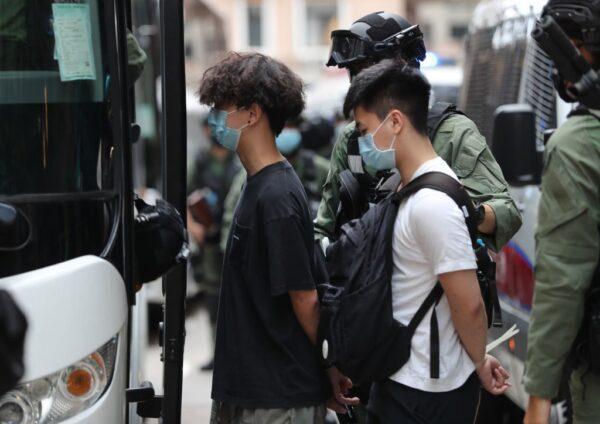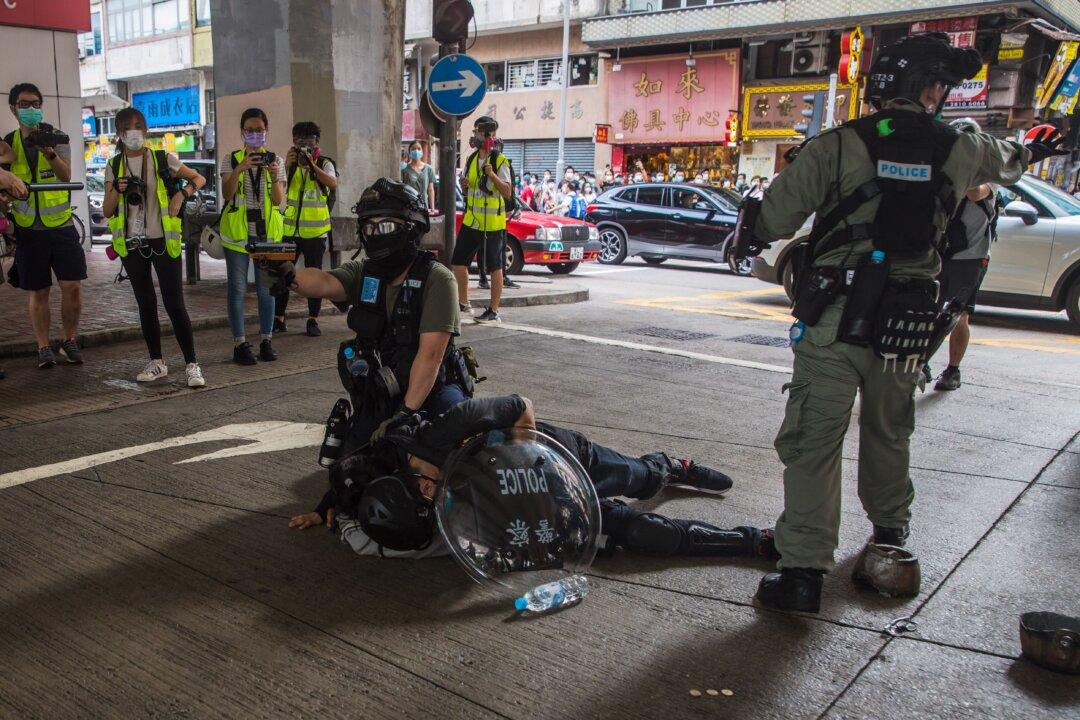UK Foreign Secretary Dominic Raab recently criticized a senior British prosecutor’s decision to take a case against a group of Hong Kong pro-democracy activists.
Senior lawyer David Perry was hired by Hong Kong’s justice department to handle a case against nine activists, including prominent media tycoon and frequent Beijing critic Jimmy Lai. They were charged in relation to their participation in a protest rally that took place in August 2019.
Raab said he could not fathom why Perry would take up such a case that is “directly violating, undermining the freedom of the people of Hong Kong.”
“I don’t understand how anyone in good conscience, from the world-leading legal profession that we have, would take a case where they will have to apply the national security legislation at the behest of the authorities in Beijing,” he said.

Labour peer Baroness Helena Kennedy QC, director of the Institute of Human Rights for the International Bar Association, said Perry’s decision was ill-advised.
“To prosecute means that you are representing and acting on behalf of the state,” she told Jane Werrell of Epoch Times’ media affiliate NTD last week.
‘Veneer of Respectability’
Kennedy said that Hong Kong may have sought an “eminent English barrister” to give “a veneer of respectability” to the prosecutions.“I think that he [Perry] has been drawn into something where he is plugging the holes in a system where the rule of law is being deeply undermined,” she said.
“He is ... providing a sort of cosmetic to something which is really a source of great alarm to those of us who believe in the rule of law and who believe in democracy.”
She suggested that Perry wasn’t under obligation to take the case, and that lawyers must “bring our values and our principles to the cases that we do.”
National Security Law
Hong Kong, a former British colony, was handed back to Chinese rule on July 1, 1997. As a condition of the handover, the Chinese Communist Party (CCP) promised not to interfere with Hongkongers basic freedoms, which are not granted to mainland Chinese under the communist system, for at least 50 years under the “one country, two systems” agreement.Officials and human rights experts have expressed concerns about the arrests and prosecutions of many local activists and Beijing critics following the Chinese regime’s enactment of a national security law last summer.





